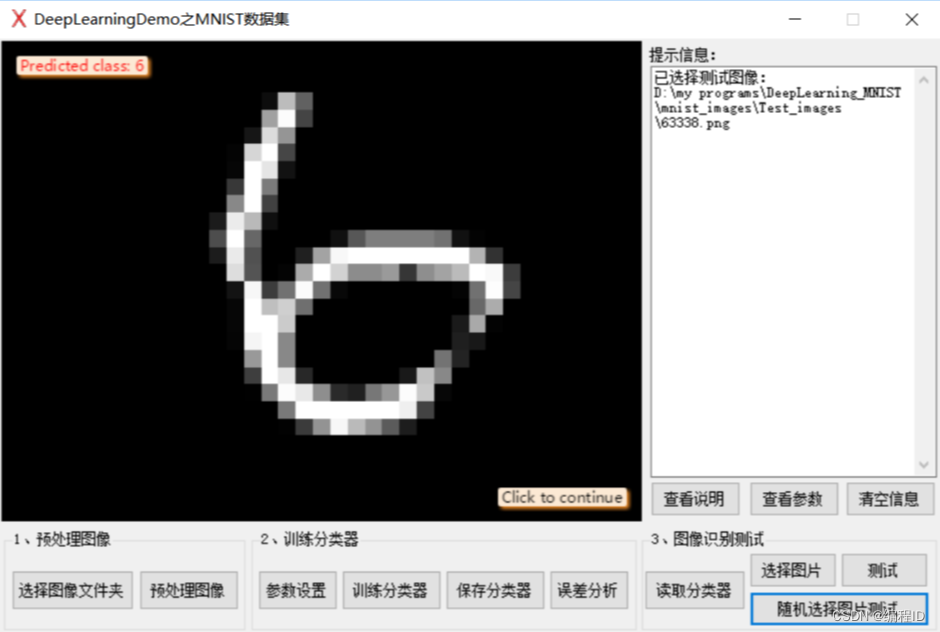好久没逛简书了。这周公司的项目也已经愉快的迭代了新版本,对于之前一直存留的东西一直没怎么梳理,今天想说说这两年特别火的网络框架。okhttp我想大部分Android开发者都不陌生,因为它的到来。是我们Android开发者的一个福音,像之前我们一直都在用volley网络请求 、android-async-http、xUtils框架等等,他们都有自己的优势,详细使用我在这里就不一一介绍了,Github有很多这样的Demo、毕竟咱今天主要说的是okhttp,相比于上面说的那些,okhttp的使用就更多具体,好用,在业界的口碑也是非常好。再加上Google已经在6.0版本里面删除了HttpClient相关API,如果有些开发者还是想用的话只能自己手动添加jar包了。我觉得为了更好的在应对目前流行的网络访问,了解使用okhttp还是非常有必要的,开始进入正题:
- 在使用的时候,对于咱们Android Studio的用户,先添加依赖库:
compile 'com.squareup.okhttp:okhttp:2.7.0' compile 'com.squareup.okio:okio:1.7.0'
- 或者使用使用以下这个,这个结合Retrofit(retrofit就是对okhttp做了一层封装。把网络请求都交给给了Okhttp,我们只需要通过简单的配置就能使用retrofit来进行网络请求)使用会更灵活,下次有时间把这个可以做一遍文章写出来。\
compile 'com.squareup.okhttp3:okhttp:3.2.0'
Get请求
在OKHttp中,每一次网络请求就是一个Request,我们只要在Request里填写我们需要的url,header等其他参数,再通过Request构造出Call,Call内部去请求参数,得到回复,并将返回调用者。即可
1.同步,异步请求
先声明 OkHttpClient client = new OkHttpClient(); 然后在子线程去执行以下操作(因为android本身是不能在主线程做网络请求操作的,这样会阻塞UI线程因此我们需要自己开启一个线程) Request request = new Request.Builder() .url("https://www.baidu.com/") .build(); Response response = client.newCall(request).execute(); if(response.isSuccessful()){ Log.i("MainActivity",response.code()); Log.i("MainActivity",response.body().string()); } }, - 异步请求的话改一丢丢就行了 client.newCall(request).enqueue(new Callback() { @Override public void onFailure(Request request, IOException e) { } @Override public void onResponse(Response response) throws IOException { //NOT UI Thread if(response.isSuccessful()){ Log.i("MainActivity",response.code()); Log.i("MainActivity",response.body().string()); } } }); 大致步骤就是这样了
2.POST请求
在进行post请求的时候,我们一般都是需要添加参数和header,甚至有请求的id和key
· 传入header Request request = new Request.Builder() .url("https://api.github.com/repos/square/okhttp/issues") .header("User-Agent", "OkHttp Headers.java") .addHeader("Accept", "application/json; q=0.5") .addHeader("Accept", "application/vnd.github.v3+json") .build(); · 使用RequestBody添加参数,类似表单提交 RequestBody formBody = new FormEncodingBuilder() .add("name", "zhangsan") .add("password", "123456") .add("subject", "subjectmit") .build(); Request request = new Request.Builder() .url(url) .post(body) .build(); · 在传入header或者post参数都是传到Request里,最后的调用方式也和上面的GET方式一样 Response response = client.newCall(request) . if (response.isSuccessful()) { return response.body().string(); }else { throw new IOException("Unexpected code " + response); } · 上面是异步请求的方式,如果是异步的话execute()改成enqueue就行了
3.还有文件上传下载,提交表达等操作,都在以下代码中进行了简单的封装
package com.lukey.okhttp_demo; import android.graphics.Bitmap; import android.graphics.BitmapFactory; import android.os.Handler; import android.os.Looper; import com.squareup.okhttp.Callback; import com.squareup.okhttp.FormEncodingBuilder; import com.squareup.okhttp.MediaType; import com.squareup.okhttp.OkHttpClient; import com.squareup.okhttp.Request; import com.squareup.okhttp.RequestBody; import com.squareup.okhttp.Response; import org.json.JSONObject; import java.io.IOException; import java.util.Map; /** * creator Lukey on 2016/8/9 */ public class OKManager { private OkHttpClient mClient; private volatile static OKManager manager; private final String TAG = OKManager.class.getSimpleName(); private Handler mHandler; //提交Json数据 private static final MediaType JSON = MediaType.parse("application/json;charset=utf-8"); //提交字符串 private static final MediaType MEDIA_TYPE_MARKWODN = MediaType.parse("text/x-markdown;charset=utf-8"); public OKManager() { mClient = new OkHttpClient(); mHandler = new Handler(Looper.getMainLooper()); } //采用单例模式获取对象 public static OKManager getInstance() { OKManager instance = null; if (manager == null) { synchronized (OKManager.class) { if (instance == null) { instance = new OKManager(); manager = instance; } } } return instance; } /** * 同步请求,在android开发中不常用,因为会阻塞UI线程 * @param url * @return */ private String syncGetByURL(String url) { //构建一个request请求 Request request = new Request.Builder().url(url).build(); Response response = null; try { response = mClient.newCall(request).execute(); //同步请求数据 if (response.isSuccessful()) { return response.body().string(); } } catch (Exception e) { e.printStackTrace(); } return null; } /** * 请求指定的URL返回的结果是json字符串 * * @param url * @param callBack */ public void asyncJsonStringByURL(String url, final Func1 callBack) { final Request request = new Request.Builder().url(url).build(); mClient.newCall(request).enqueue(new Callback() { @Override public void onFailure(Request request, IOException e) { e.printStackTrace(); } @Override public void onResponse(Response response) throws IOException { if (response != null && response.isSuccessful()) { onSuccessJsonStringMethod(response.body().string(), callBack); } } }); } /** * 请求返回的json对象 * * @param url * @param callBack */ public void asyncJsonObjectByURL(String url, final Func4 callBack) { final Request request = new Request.Builder().url(url).build(); mClient.newCall(request).enqueue(new Callback() { @Override public void onFailure(Request request, IOException e) { e.printStackTrace(); } @Override public void onResponse(Response response) throws IOException { if (response != null && response.isSuccessful()) { onSuccessJsonObjectMethod(request.body().toString(), callBack); } } }); } /** * 请求返回的字节对象 * * @param url * @param callBack */ public void asyncGetByteURL(String url, final Func2 callBack) { final Request request = new Request.Builder().url(url).build(); mClient.newCall(request).enqueue(new Callback() { @Override public void onFailure(Request request, IOException e) { e.printStackTrace(); } @Override public void onResponse(Response response) throws IOException { if (response != null && response.isSuccessful()) { onSuccessByteMethod(response.body().bytes(), callBack); } } }); } /** * 请求返回的结果是一个imageview类型 bitmap类型 * * @param url * @param callBack */ public void asyncDownLoadIamgeByURL(String url, final Func3 callBack) { final Request request = new Request.Builder().url(url).build(); mClient.newCall(request).enqueue(new Callback() { @Override public void onFailure(Request request, IOException e) { e.printStackTrace(); } @Override public void onResponse(Response response) throws IOException { if (response != null && response.isSuccessful()) { byte[] data = response.body().bytes(); Bitmap bitmap = new CropSquareTrans().transform(BitmapFactory.decodeByteArray(data, 0, data.length)); callBack.onResponse(bitmap); } } }); } /** * 模拟表单提交 * * @param url * @param params * @param callBack */ public void sendComplexForm(String url, Map<String, String> params, final Func4 callBack) { FormEncodingBuilder formEncodingBuilder = new FormEncodingBuilder(); //表单对象 if (params != null && !params.isEmpty()) { for (Map.Entry<String, String> entry : params.entrySet()) { formEncodingBuilder.add(entry.getKey(), entry.getValue()); } } RequestBody requestBody = formEncodingBuilder.build(); //采用post方式提交 Request request = new Request.Builder().url(url).post(requestBody).build(); mClient.newCall(request).enqueue(new Callback() { @Override public void onFailure(Request request, IOException e) { e.printStackTrace(); } @Override public void onResponse(Response response) throws IOException { if (response != null && response.isSuccessful()) { onSuccessJsonObjectMethod(response.body().string(), callBack); } } }); } /** * 向服务器提交String请求 * * @param url * @param content * @param callBack */ public void sendStringByPostMethod(String url, String content, final Func4 callBack) { final Request request = new Request.Builder() .url(url).post(RequestBody.create(MEDIA_TYPE_MARKWODN, content)).build(); mClient.newCall(request).enqueue(new Callback() { @Override public void onFailure(Request request, IOException e) { e.printStackTrace(); } @Override public void onResponse(Response response) throws IOException { if (request != null && response.isSuccessful()) { onSuccessJsonObjectMethod(response.body().string(), callBack); } } }); } /** * 请求返回的结果是json字符串 * * @param jsonValue * @param callBack */ private void onSuccessJsonStringMethod(final String jsonValue, final Func1 callBack) { mHandler.post(new Runnable() { @Override public void run() { if (callBack != null) { try { callBack.onResponse(jsonValue); } catch (Exception e) { e.printStackTrace(); } } } }); } /** * 返回响应的结果是json对象 * * @param jsonValue * @param callBack */ private void onSuccessJsonObjectMethod(final String jsonValue, final Func4 callBack) { mHandler.post(new Runnable() { @Override public void run() { if (callBack != null) { try { callBack.onResponse(new JSONObject(jsonValue)); } catch (Exception e) { e.printStackTrace(); } } } }); } /** * 返回响应的是byte[] 数组 * * @param data * @param callBack */ private void onSuccessByteMethod(final byte[] data, final Func2 callBack) { mHandler.post(new Runnable() { @Override public void run() { if (callBack != null) { callBack.onResponse(data); } } }); } // 定义四个接口,对外部调用 interface Func1 { void onResponse(String result); } interface Func2 { void onResponse(byte[] result); } interface Func3 { void onResponse(Bitmap bitmap); } interface Func4 { void onResponse(JSONObject jsonObject); } }
4.最后在补充一个缓存数据的代码
· 先设置一个路径 private static String savePath = Environment.getExternalStorageDirectory() .getAbsolutePath() + "/mydata/dataCash"; private static File mCashFile = new File(savePath); private static int mCacheSize = 20 * 1024 * 1024; private static final Interceptor REWRITE_CACHE_CONTROL_INTERCEPTOR = new Interceptor() { @Override public Response intercept(Chain chain) throws IOException { Request request = chain.request(); if (!ConnectionUtil.isConnection(LdApplication.getInstance())) { request = request.newBuilder() .cacheControl(CacheControl.FORCE_CACHE) .build(); } else { request = request.newBuilder() .cacheControl(CacheControl.FORCE_NETWORK) .build(); } Response originalResponse = chain.proceed(request); if (ConnectionUtil.isConnection(LdApplication.getInstance())) { //有网的时候读接口上的@Headers里的配置,可以在这里进行统一的设置 String cacheControl = request.cacheControl().toString(); return originalResponse.newBuilder() .header("Cache-Control", cacheControl) .removeHeader("Pragma") .build(); } else { return originalResponse.newBuilder() .header("Cache-Control", "public, only-if-cached, max-stale=2419200") .removeHeader("Pragma") .build(); } } }; · 以下设置持久化Cookie public static void setCookie() { mClient.setCookieHandler(new CookieManager( new PersistentCookieStore(MyApplication.getInstance()), CookiePolicy.ACCEPT_ALL)); } MyApplication.getInstance() ---->在Application用单例的方式实现
5.在主界面中调用
public class MainActivity extends AppCompatActivity { private Button mButton; private final static String TAG = MainActivity.class.getSimpleName(); private OKManager mOKManager; private String image_path = "http://pic.mmfile.net/thumbs/2016/06/66970_13a13_236.jpg"; private String json_path = "http://api.avatardata.cn/Weather/Query?key=d79f47b8dcb74eb78ea3d74b88876145&cityname=%E6%B7%B1%E5%9C%B3"; @Override protected void onCreate(Bundle savedInstanceState) { super.onCreate(savedInstanceState); setContentView(R.layout.activity_main); mButton = (Button) this.findViewById(R.id.button); mOKManager = OKManager.getInstance(); mButton.setOnClickListener(new View.OnClickListener() { @Override public void onClick(View view) { mOKManager.asyncJsonStringByURL(json_path, new OKManager.Func1() { @Override public void onResponse(String result) { Logger.json(result.toString()); Log.d(TAG,result); } }); }}); } } · 布局很简单一个点击按钮和一个显示文本 · 然后别忘了在配置文件中添加权限哦~~~~ <uses-permission android:name="android.permission.INTERNET"/>








 已为社区贡献9条内容
已为社区贡献9条内容

所有评论(0)